#ivan sergeev
Explore tagged Tumblr posts
Text




Their first time 🥰
10 notes
·
View notes
Text
ну мама ему сейчас позвонит
1 note
·
View note
Text
È cosa nota: camminare sulla corda tesa, proprio sul ciglio del burrone, è l'occupazione preferita dalle donne (Ivan Sergeevic Turgenev, Il canto dell'amor trionfante e altri racconti).
#narrativa#narrativa russa#letteratura russa#ivan turgenev#feltrinelli#il canto dell'amor trionfante
65 notes
·
View notes
Text



On the images: the book ENOUÊTE JUDICIAIRE SUR L'ASSASSINAT DE la Famille Impériale Russe' by Nicolas Sokoloff, published by Payot (France) in 1924
Two books of the investigator N. A. Sokolov - second hand sources
I've just realised that people often refer to 'the book' supposedly by the investigator N.A. Sokolov who in February 1919 was appointed by Kolchak to investigate the murder case of the Imperial Family. It appears that some people are under the impression that this book is the primary source of information on the case. This needs clarification.
N. A. Sokolov was not the first investigator of the case.
The first investigator of the case was Aleksei Dmitrievich Nametkin (1875-1919) - investigator of the most important cases, Ekaterinburg District Court, collegiate assessor. He started the investigation on 30 July 1918. He was the one who went to Ganina Pit and Koptyaki with white officers.
The second investigator was Ivan Alexandrovich Sergeev (1872-1919) - he was appointed the investigator for the case on 13 August 1918. He was the one who provided the description of rooms in the Ipatievsky House and also interrogated Pavel Medvedev, the commander of the outside guards in Ipatievsky House, along other indirect witnesses. Note: Pavel Medvedev was the ONLY direct witness with his story ever interrogated by any of the investigators in 1918-1919.
N.A. Sokolov (1882-1924) was the third and final investigator of the case. He was appointed by the Military Dictator, Kolchak, to 'prove' the death of Nicolas II and his Family in Ipatievsky house. The reason being that the previous investigators were not quite agreeable with his course of action. They wanted to solve the case not to prove that Nicolas II and his family were killed.
To the existing investigation papers collected by the two previous investigators N.A. Sokolov added his own papers and 'evidence'. Note: Sokolov was appointed the investigator in February 1919 - 8 months after the 'murder'.
In July 1919, Sokolov together with the whites retreated to Harbin, China. Later, he immigrated to France, taking the investigation materials - 7 volumes, with him.
In France, some of the investigation materials (not all), were published in the book called 'ENOUÊTE JUDICIAIRE SUR L'ASSASSINAT DE la Famille Impériale Russe' by Nicolas Sokoloff. The book was published in French by the Publishing house Payot, in 1924. Obviously, N.A. Sokolov did not speak French, so the book was put together, edited, and translated by someone else. By whom is not mentioned in the book.
On 24 November 1924 N.A. Sokolov was found dead in his garden in Paris. The cause of death was not established. However, 'official' version was a heart attack.
In 1925, Publishing house 'Slovo' in Berlin published the book 'Убиiство царской семьи' putting as an author N. Sokolov. The book put together in Russian differs from the one in French. Who put the Russian text together, and edited is not stated in the book.
Important: both books contain only a fraction of the investigation materials contained in 7 volumes of the original investigation. Both books do not state the editors, translators, and how the material was provided for publishing. Both books do not state the full official name of the author - N.A. Sokolov. Nicolas Sokoloff and N. Sokolov can be anybody really. Sokolov's full name was Nikolai Alekseevich Sokolov.
Taking the above into consideration, the book by 'Sokoloff/Sokolov' cannot be relied on as the only source of the information in this case. Mainly because it does not offer the full investigation material of the case.

On the image: a spread of the book 'Убиiство царской семьи' by N. Sokolov published by publishing hosue 'Slovo' in Berlin in 1925
#romanovs#research#seraphima bogomolova#investigation#nicolas ii#evidence#murder mystery#books#N.A. Sokolov#payot#1924#Berlin#Paris#Slovo
3 notes
·
View notes
Text
Reading list Jan-24
Books
Frolic of the beasts by Yukio Mishima
tools for conviviality by Ivan Illch
Notes of a Native Son by James Baldwin
In The Company of Men by Veronique Tadjo (you can find my review here)
Only People Make Their Own History by Samir Amin
Eric Hobsbawm: A Life in History by Richard J. Evans
Papers/articles!
Letter: On Academic Marxism, “The Masses,” and Bourgeois Nationalism - Cosmonaut (cosmonautmag.com)
International Financial Centres as Channels for Foreign Investment Inflows to Europe by Bulatov, Habarta and Sergeev
Robin Blackburn, Crisis 2.0, NLR 72, November–December 2011 (newleftreview.org)
Robin Blackburn, The Subprime Crisis, NLR 50, March–April 2008 (newleftreview.org)
Financialization, Financial Elites, and the Changing Genres of Financial and Banking History by Simon Mollan
#studyblr#studying with k#studyingwithk#books#academia#studying#desi dark academia#dark academia#bookblr#reading list#study#study aesthetic#readingrecs#mymonthlyreads#clown college
6 notes
·
View notes
Photo
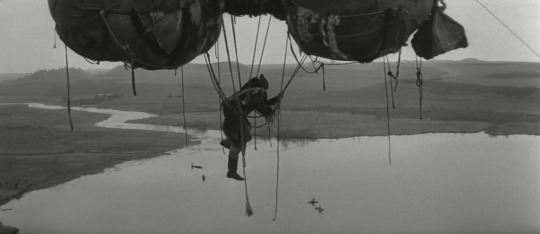
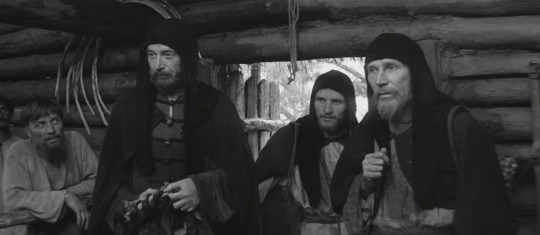

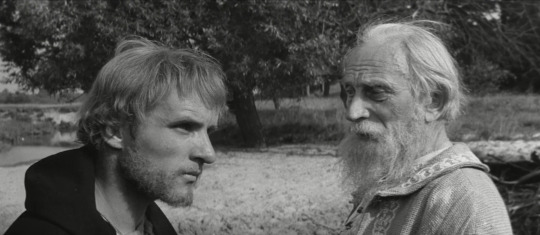






Andrej Rublëv (1966)
#film#movie#andrej rublev#tarkovskij#tarkovsky#Андрей Рублёв#cinema russo#russia#urss#Andrej Končalovskij#Vadim Jusov#Nikolaj Burljaev#Anatolij Solonicyn#Ivan Lapikov#Mykola Hrin'ko#Nikolaj Sergeev#Андрей Тарковский
59 notes
·
View notes
Photo
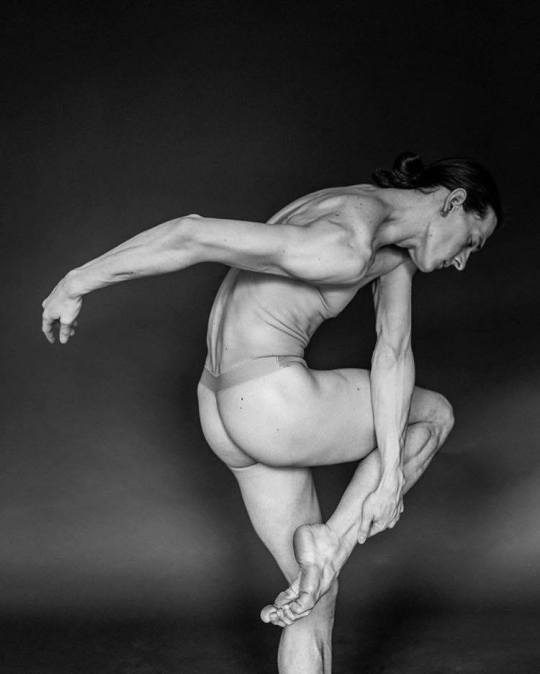
Evgeny Sergeev - Eifman Ballet - photo by Ivan Tamazin
#evgeny sergeev#eifman ballet#ivan tamazin#@ivan_tamazin#ballet photography#dance photography#ballet#dance#dancer#danseur#ballerino#bailarín#ballet men
49 notes
·
View notes
Photo

Non aderisco all'opinione di nessun uomo: ne ho alcune per conto mio. (Ivan Sergeevič Turgenev)
29 notes
·
View notes
Photo

“The Feast of Ivan The Formidable” by Yuriy Sergeev.
#yuriy sergeev#юрий сергеев#russian#slavic#russian art#ivan the formidable#Ivan the Terrible#иван грозный#tsardom of russia
136 notes
·
View notes
Text

Homosexuals.
3 notes
·
View notes
Text

Musa era molto cambiata nel viso, nella voce, nei movimenti, ma soprattutto erano cambiati i suoi occhi (Ivan Sergeevic Turgenev, Il canto dell'amor trionfante e altri racconti, Milano, Feltrinelli, 2007).
9 notes
·
View notes
Text


On the images: on the left: Alexei Dmitrievich Nametkin (1875-1919) on the right: N.A. Sokolov (1882-1924)
How many investigators have been on the infamous case of Romanovs?
Answer: 5, including the current one - Marina Viktorovna Molodtsova
Here they are in the order of the investigation time line:
Aleksei Dmitrievich Nametkin (1875-1919) - investigator of the most important cases, Ekaterinburg District Court, collegiate assessor. He started the investigation on 30 July 1918.
Ivan Alexandrovich Sergeev (1872-1919) - he was appointed the investigator for the case on 13 August 1918.
N. A. Sokolov (1882-1924) - appointed by Kolchak in February 1919.
Vladimir Nikolaevich Soloviev (27 February 1950 -) - prosecutor - criminologist, led the case in the period of 19 August 1993 - 1998 and from 21 August 2007 to October 2011.
Marina Viktorovna Molodtsova - Senior Investigator for Particularly Important Cases under the Chairman of the Investigative Committee of the Russian Federation, on the case since autumn 2015 and till present.
Notes: Criminalists and detectives who also contributed into the Romanvs case in 1918-1919 - A.F. Kirsta, and P. Pleshkov.


On the images: on the left: Vladimir Nikolaevich Soloviev (27 February 1950 -); on the right: Marina Viktorovna Molodtsova
#romanovs#research#seraphima bogomolova#investigation#nicolas ii#evidence#murder mystery#investigators#Molodtsova#Sokolov#Soloviev#Nametkin#Sergeev
0 notes
Text

Maria Khoreva as Princess Aurora and Kimin Kim as Prince Désiré, "Sleeping Beauty", music by Pyotr Tchaikovsky, libretto by Ivan Vsevolozhsky and Marius Petipa based on the fairy tale of the same name by Charles Perrault, choreography by Marius Petipa, revised version by Konstantin Sergeev (1952), Mariinsky Ballet, Saint Petersburg, Russia. (March 24, 2022; new stage)
Photographer Alexander Neff
1 note
·
View note
Text
Saints&Reading: Sun., Jan. 24, 2021
Commemorated on January 11by the New calendar.
The Monk Theodosios the Great (529)
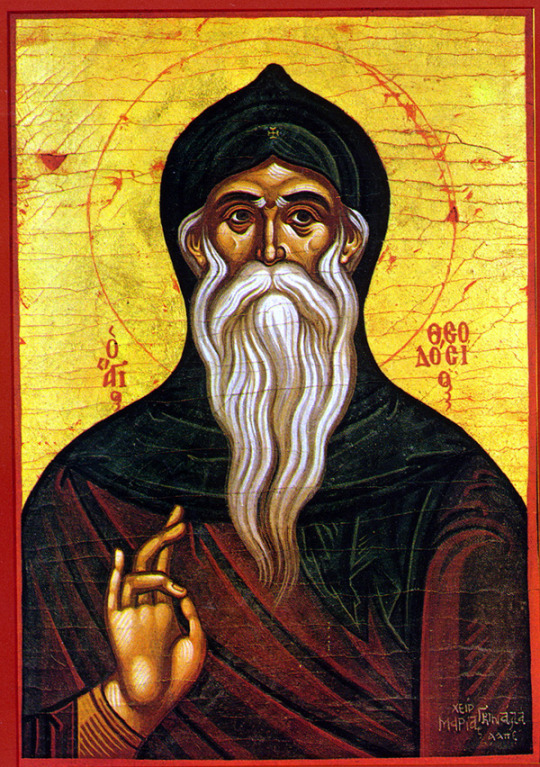
The Monk Theodosios the Great lived during the V-VI Centuries, and was the initiator of common-life (coenobitic) monasteries. He was born in Cappadocia of pious parents. Endowed with a splendid voice, he zealously toiled at church reading and singing. And the Monk Theodosios prayed fervently, that the Lord would guide him on the way to salvation. In his early years he visited the Holy Land and met with the Monk Simeon the Stylite ("Pillar-Dweller", + 459, Comm. 1 September), who blessed him and predicted future pastoral service for him. Yearning for the solitary life, Saint Theodosios settled in Palestine into a desolate cave, – in which by tradition, the three Magi had spent the night, having come to worship at the Nativity of the Saviour of the world. In it he dwelt for 30 years in great abstinence and unceasing prayer. Steadily there began to throng to the ascetic those wanting to live under his guidance. When the cave could no more hold all the gathered monks, the Monk Theodosios began to pray, that the Lord Himself would point out the place for the monks. Taking with him a censer with cold unlit coals, the monk went into the wilderness. At a certain spot the coals fired up and set the incense smoke to rising. Here also the monk founded the first common-life monastery, or Lavra [Greek "Laura" meaning "broad" or populous"; in Russia were four such: Trinity-Sergeev, Kievo-Pechersk, Alexander-Nevsk and Pochaev], under the ustav-rule of Saint Basil the Great (+ 379, Comm. 1 January). Soon the Lavra of the Monk Theodosios became reknown, and up to 700 monks gathered at it. According to the final testament of the Monk Theodosios, the Lavra rendered service to neighbour, giving aid to all the poor and providing shelter for wanderers.
The Monk Theodosios was extremely compassionate. One time when there was a famine in Palestine and a multitude of people gathered at the monastery, the monk gave orders to allow everyone into the monastery enclosure. His disciples were annoyed, knowing, that the monastery did not have the means to feed all those who had come. But when they went into the bakery, they saw that then through the prayers of the abba, that it was filled with bread. And suchlike a miracle was repeated every time, when the Monk Theodosios wanted to give help to the destitute. At the monastery the Monk Theodosios built an home for taking in strangers, separate infirmaries for monks and laymen, and also a shelter for the dying. Seeing that at the Lavra were gathered people from various lands, the monk arranged for Divine-services in the various languages – Greek, Gruzian (Georgian) and Armenian. For communing the Holy Mysteries all gathered in the large church, where Divine-services were done in Greek. During the reign of the Constantinople emperor Anastasias (491-518) there arose the heresy of Eutykhios and Severus, which recognised neither the sacraments nor the clergy. The emperor joined in with the false-teaching, and the Orthodox began to suffer persecution. The Monk Theodosios stood firmly in defense of Orthodoxy and on behalf of the wilderness monks wrote a missive to the emperor, in which they denounced him and refuted the condemned heresy with the teachings of the OEcumenical Councils. He affirmed moreover, that the wilderness-dwellers and monks would firmly support the Orthodox confession. The emperor showed restraint for a short while, but then he renewed persecution of the Orthodox. The holy elder then manifest great zeal for the truth. Leaving the monastery, he came to Jerusalem and in the "Great" church, stood at the high place and cried out for all to hear: "Whoever honoureth not the four OEcumenical Councils, let them be anathema!". For this bold deed the monk was sent to prison, but soon returned after the death of the emperor. The Monk Theodosios during his life accomplished many healings and other miracles, coming to the aid of the needy. One time by prayer he destroyed locusts that were devastating the fields in Palestine; also by his intercession, soldiers were kept from perishing, and he saved both those perishing in shipwreck and those lost in the desert. One time the monk gave orders to strike the signal, so that the brethren would gather at prayer, and said: "The wrath of God draweth near the Eastern land". After several days it became known, that a strong earthquake had destroyed the city of Antioch at that very hour, when the monk had summoned the brethren to prayer. Before his death, the Monk Theodosios summoned to him three beloved bishops and revealed to them, that he would soon expire to the Lord. After three days he died at the age of 105, in the year 529. The body of the saint was buried with reverence in the cave, in which he lived at the beginning of his ascetic deeds.
The Monk Michael of Klopsk (452)
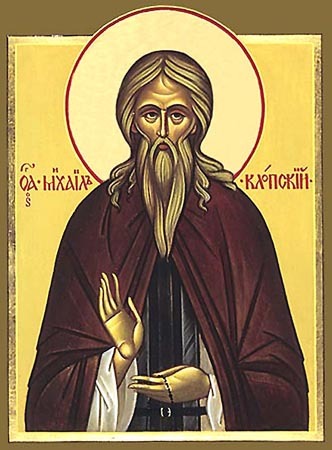
The Monk Michael of Klopsk was descended of boyar (noble) lineage, and he was a kinsman of GreatPrince Dimitrii Donskoi (1363-1389). He took upon himself the exploit of Fool-for-Christ: he left Moscow and in rags he arrived at the Klopsk monastery, near Novgorod. No one knew, how he got into the locked cell of the priest-monk Makarii, who then was making a censing at the 9th Ode of the Canon and was going round the cell censing. But there sat a man in monastic garb and beneath a candle he wrote copying from the Acts of the holy Apostles. After the finish of matins the hegumen with brethren came and started to ask the stranger: who is he and of what name? But he answered only by a repeating of the questions and did not reveal his origin. In church the saint sang in the choir and read the Epistle, and at meals he read the Saint-Lives. All who listened were moved by the beauty and spirituality of his reading. On the feast of the Transfiguration of the Lord, the Klopsk monastery was visited by prince Konstantin Dimitrievich (son of GreatPrince Dimitrii Donskoi). After Communion he together with the princess was at the refectory, during the time of which the unknown stranger read from the Book of Job. Hearing the reading, the prince approached the reader and, having looked him over, he bowed down to him, calling him by name his kinsman Mikhail Maksimovich. The fool remarked: "The One Only Creator knoweth of me, who I be", but confirmed that his name was Michael. The Monk Michael soon set example for the brethren in all the monastic efforts. He lived at the Klopsk monastery for 44 years, exhausting his body in work, vigils and various deprivations, and he received from the Lord the gift of perspicacity. He denounced the vices of people, not fearing the powerful of this world. He predicted the birth on 22 January 1440 of GreatPrince Ivan III (1462-1505), and the taking of Novgorod by him. He denounced prince Dimitrii Shemyaka for blinding his brother the GreatPrince Vasilii the Dark (1425-1462).
All texts©1996-2001 by translator Fr. S. Janos.
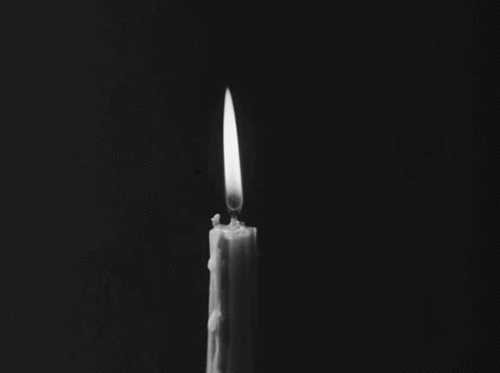
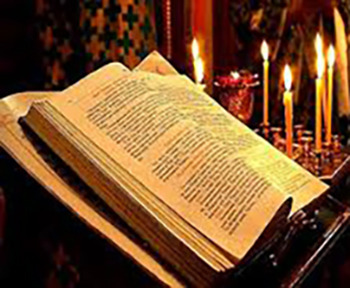
Matthew 4:12-17
12Now when Jesus heard that John had been put in prison, He departed to Galilee.13 And leaving Nazareth, He came and dwelt in Capernaum, which is by the sea, in the regions of Zebulun and Naphtali,14 that it might be fulfilled which was spoken by Isaiah the prophet, saying: 15 The land of Zebulun and the land of Naphtali, By the way of the sea, beyond the Jordan, Galilee of the Gentiles: 16 The people who sat in darkness have seen a great light, And upon those who sat in the region and shadow of death Light has dawned." 17 From that time Jesus began to preach and to say, "Repent, for the kingdom of heaven is at hand."
2 Corinthians 4:6-15
6 For it is the God who commanded light to shine out of darkness, who has shone in our hearts to give the light of the knowledge of the glory of God in the face of Jesus Christ.7 But we have this treasure in earthen vessels, that the excellence of the power may be of God and not of us. 8 We are hard-pressed on every side, yet not crushed; we are perplexed, but not in despair; 9 persecuted, but not forsaken; struck down, but not destroyed- 10 always carrying about in the body the dying of the Lord Jesus, that the life of Jesus also may be manifested in our body.11 For we who live are always delivered to death for Jesus' sake, that the life of Jesus also may be manifested in our mortal flesh. 12 So then death is working in us, but life in you. 13 And since we have the same spirit of faith, according to what is written, "I believed and therefore I spoke," we also believe and therefore speak, 14 knowing that He who raised up the Lord Jesus will also raise us up with Jesus, and will present us with you. 15 For all things are for your sakes, that grace, having spread through the many, may cause thanksgiving to abound to the glory of God.
#orthodoxy#orthodoxchrsitianity ancientchristianity originofchristianity spiritualilty holyscriptures gospel sacredtexts
11 notes
·
View notes
Photo

Evgeny Sergeev - @_looook_at_me_ Eifman Ballet - photo by Ivan Tamazin
#evgeny sergeev#@_looook_at_me_#eifman ballet#ivan tamazin#dance#ballet#dancer#danseur#ballerino#bailarín#boys of ballet#ballet men
15 notes
·
View notes
Photo

You just spoke of Jesus. Perhaps he was born and crucified to reconcile God and man. Jesus came from God, so he is all-powerful. And if He died on the cross it was predetermined and His crucifixion and death were God's will. That would have aroused hatred not in those that crucified him but in those that loved him if they had been near him at that moment, because they loved him as a man only. But if He, of His own will, left them, He displayed injustice, or even cruelty. Maybe those who crucified him loved him because they helped in this divine plan.
Andrey Rublev, Andrei Tarkovsky (1966)
#Andrei Tarkovsky#Andrey Konchalovskiy#Anatoliy Solonitsyn#Ivan Lapikov#Nikolay Grinko#Nikolay Sergeev#Nikolay Burlyaev#Irina Tarkovskaya#Yuriy Nazarov#Yuriy Nikulin#Rolan Bykov#Nikolay Grabbe#Mikhail Kononov#Vadim Yusov#Vyacheslav Ovchinnikov#Tatyana Egorycheva#Lyudmila Feyginova#Olga Shevkunenko#1966
1 note
·
View note